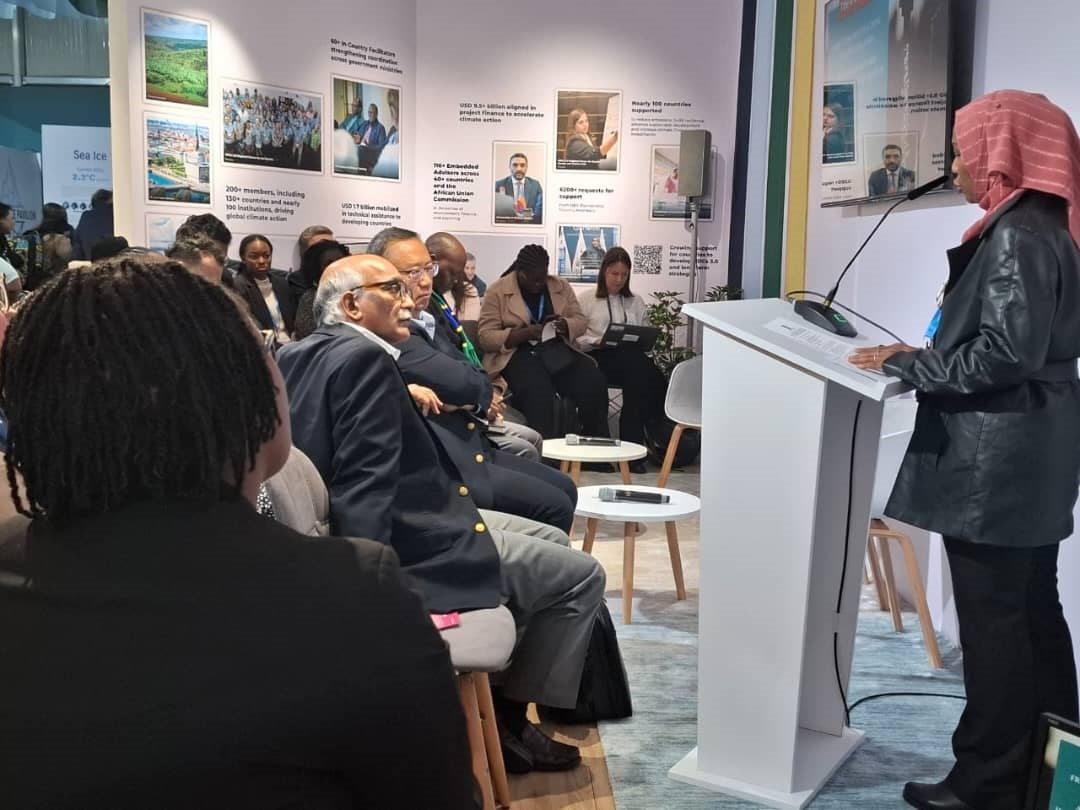What it takes for Africa to lead in Artificial Intelligence

Experts in technology have outlined the key factors that could propel Africa to become a global leader in Artificial Intelligence (AI).
They says AI is not merely a technological advancement but a transformative force reshaping industries and societies worldwide, as its impact spans across sectors such as healthcare, agriculture, finance, and education, driving significant changes.
Kate Kallot, founder of Amini—Africa's first AI-based climate data platform—argues that the continent possesses two critical assets for becoming an AI hub: a youthful population and a plethora of pressing problems.
She emphasizes the need for a rethink in infrastructure development.
"We must build infrastructure in a way that ensures access to power, connectivity, and computing resources. This will foster ecosystems capable of creating impactful solutions," Kallot suggests.
Alex Okosi, Managing Director for Africa at Google, discusses overcoming the challenges related to infrastructure, talent, and regulation.
He highlights the importance of educating the youth, noting that AI can bridge educational gaps, allowing young Africans to rapidly acquire knowledge and develop innovative solutions to advance the continent.
Currently, Africa accounts for only 2.5 percent of the global AI market. However, according to Artificial Intelligence for Development (AI4D) Africa, emerging AI applications could drive an economic boost of up to $2.9 trillion by 2030.
A GSMA report, “AI for Africa: Use Cases Delivering Impact,” reveals over 90 AI applications in leading technology markets like Kenya, Nigeria, and South Africa, which could significantly impact socioeconomic and climate issues.
Max Cuvellier Giacomelli, head of mobile for development at the GSMA, stresses the need to increase skills for both AI developers and users, especially in underserved areas.
"Better training programs are crucial, especially given the global brain drain in AI talent. To prevent Africa from falling behind, strong partnerships among big tech, NGOs, governments, and mobile operators are essential," he says.
Giacomelli also emphasizes the importance of evolving policies to address inequality, ethics, and human rights concerns related to AI.
The majority of current AI applications in Africa focus on agriculture (49 percent), climate action (26 percent), and energy (24 percent). Agriculture, which employs 52 percent of the African workforce and contributes an average of 17 percent to GDP, benefits from AI through machine-learning-enabled digital advisory services.
These services provide farmers with data-driven advice for climate-smart practices and productivity enhancement.
In energy, AI solutions are addressing challenges in both on-grid and off-grid systems, such as predictive maintenance and smart energy management.
Improving energy access and efficiency is crucial for enhancing internet usage, cellular networks, and data generation necessary for AI capabilities.
At the recent Pan African AI conference in Abuja, Nigeria, US Deputy Secretary of State Kurt Campbell highlighted the global tech revolution and its implications.
"We aim to foster collaborations between the US and African AI researchers, policymakers, and industry leaders to drive innovation and address common challenges. This collaboration will help share the benefits of AI globally," Campbell stated.
The African Union (AU) has taken a significant step by launching the continent's AI Strategy in July 2024.
This strategy is seen as pivotal for transforming Africa into a global technology hub.
It calls for member states to adopt AI strategies that align with developmental goals, such as Agenda 2063 and the Sustainable Development Goals (SDGs).
The AU's strategy emphasizes an Africa-centric approach to AI, promoting ethical, responsible, and equitable practices.
The Continental AI Strategy aims to unify national policies across member states, strengthen regional and global cooperation, and position Africa as a leader in inclusive and responsible AI development.
Developing national AI policies is crucial for guiding the responsible deployment of AI technologies tailored to Africa’s unique socio-economic contexts.
Dr. Amani Abou-Zeid, African Union Commissioner for Infrastructure and Energy, highlighted AI's potential to drive the digital revolution and impact various sectors.
She noted a significant rise in AI-related searches and daily ChatGPT use in Africa, alongside the development of notable AI labs in several universities.
Dr. Abou-Zeid praised the AU's commitment to developing AI capabilities while addressing risks such as rights infringements and misuse. "The Continental AI Strategy reflects our commitment to ethical, responsible, and equitable AI development," she said.
NEPAD CEO Amb. Nardos Bekele, speaking at the conference, underscored AI’s transformative power in addressing Africa's challenges across health, education, agriculture, and governance.
"AI is no longer science fiction; it is reshaping industries worldwide and holds the potential to accelerate our Agenda 2063 goals," Bekele affirmed.
Challenges of adopting AI in Africa
Adopting Artificial Intelligence (AI) in Africa presents several significant challenges despite the continent’s potential for growth in this field.
Infrastructure Deficiencies: One of the primary hurdles is inadequate infrastructure. Many regions in Africa lack reliable electricity, high-speed internet, and computing resources, which are essential for developing and deploying AI technologies. Building and maintaining proper infrastructure is crucial for AI adoption in Africa.
Skills Gap: There is a notable shortage of skilled professionals in AI and related fields. While the continent has a large, youthful population, the lack of training and education in advanced technological skills limits the ability to develop and implement AI solutions. Addressing this skills gap through targeted education and training programs is essential.
Access to data: AI relies heavily on data, and many African countries face challenges related to data collection, management, and privacy. The availability of quality data is crucial for training AI models, and the lack of robust data infrastructure and privacy regulations can hinder progress.
Regulatory and ethical concerns: Developing comprehensive regulatory frameworks for AI is challenging. There are concerns about the ethical use of AI, including issues related to data privacy, algorithmic bias, and the potential for misuse. Crafting regulations that ensure ethical AI deployment while fostering innovation is a complex task.
Investment and funding: Securing funding for AI projects can be difficult. Many AI initiatives require significant investment, and there is often a lack of financial resources and venture capital focused on technology startups in Africa. Increasing investment and support for AI research and development is necessary to drive progress.
Digital divide: The digital divide is a significant barrier to AI adoption. Disparities in access to technology and digital literacy between urban and rural areas can limit the reach and impact of AI solutions. Bridging this divide is crucial for ensuring that AI benefits are widely distributed.
Cultural and societal factors: AI adoption can be influenced by cultural and societal attitudes towards technology. In some areas, there may be resistance to new technologies or concerns about their implications. Addressing these concerns and fostering a positive attitude towards AI is important for its successful integration.
Political and economic instability: Political and economic instability in some regions can affect the implementation of AI projects. Uncertainty and instability can deter investment and hinder the development of technological infrastructure and policies.
Way forward
Addressing these challenges requires a coordinated effort from governments, educational institutions, private sector players, and international organizations.
By focusing on building infrastructure, enhancing education, improving data management, and fostering a supportive regulatory environment, Africa can overcome these obstacles and leverage AI to drive growth and development.
Top Headlines
© 2024 IPPMEDIA.COM. ALL RIGHTS RESERVED
























